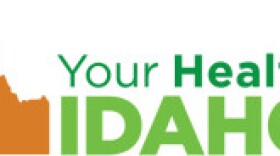-
Idaho residents without current health insurance can sign up for coverage during a special enrollment period starting today.Normally, people without a…
-
For Idahoans who have found themselves uninsured during a pandemic, there are options. But according to one group, the state could take steps to get more…
-
Open enrollment for health care plans through Your Health Idaho, the state’s insurance marketplace, starts Nov. 1. As questions swirl at the federal level…
-
A plan from Congressional Republicans to replace Obamacare could result in a mass exodus from Idaho’s online health insurance exchange.State officials say…
-
A group of lawmakers met Monday at the Idaho Statehouse to continue a discussion about a possible expansion of Medicaid.It was the fifth time the interim…
-
In February, hundreds of people went to the statehouse to show their support for an expansion of Medicaid. About 30 people gave public testimony,…
-
Officials with Your Health Idaho say they are actively working to ensure that customers don't see another delay in receiving a critical tax form needed to…
-
Last month, Idaho Governor Butch Otter proposed a plan to provide health care to the estimated 78,000 Idahoans who don’t qualify for either Medicaid or…
-
According to a new Kaiser Family Foundation study, the 29 states that expanded Medicaid since the Affordable Care Act have – not surprisingly – witnessed…
-
Idaho's online insurance exchange needs to collect $9 million in revenue by the summer of 2017 or risk dipping into its limited reserves in order to stay…

Play Live Radio
Next Up:
0:00
0:00
Available On Air Stations











